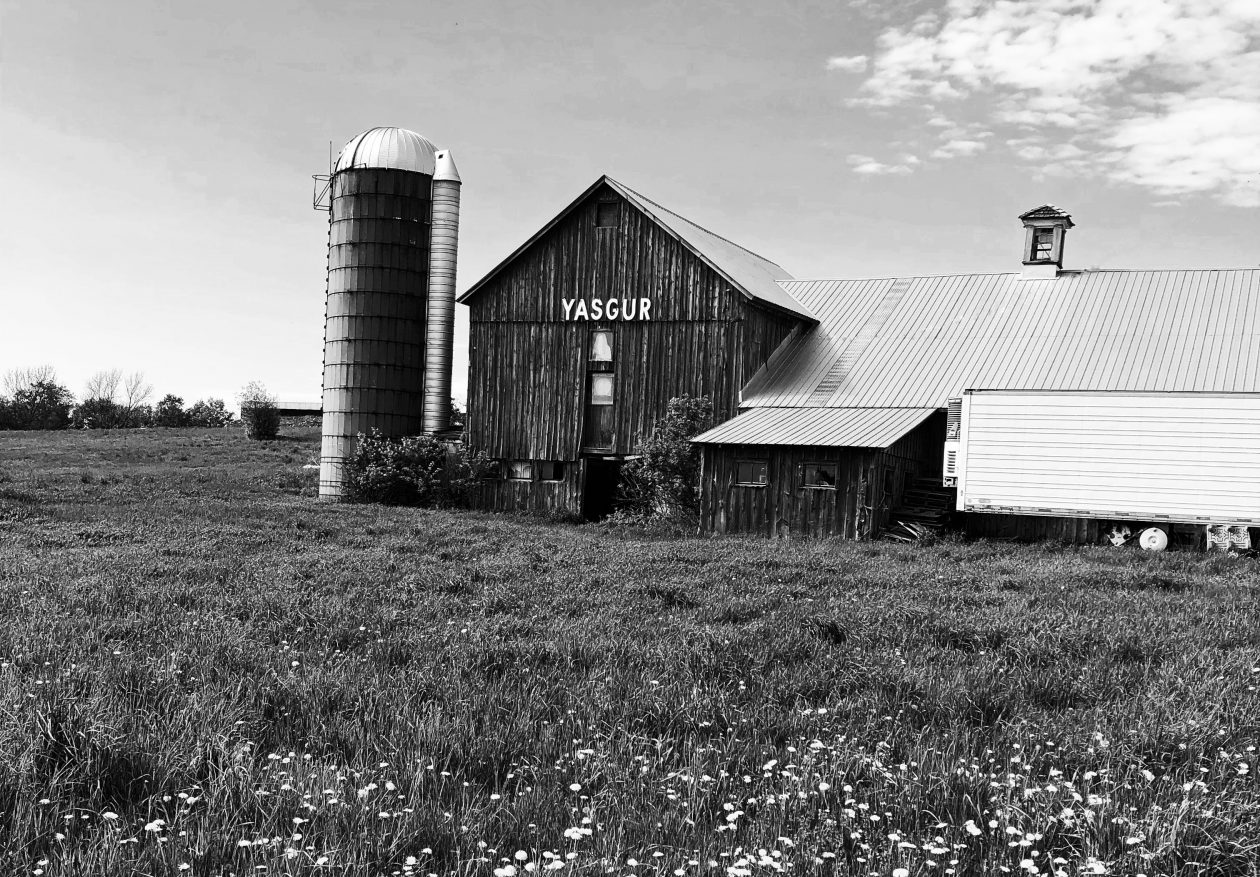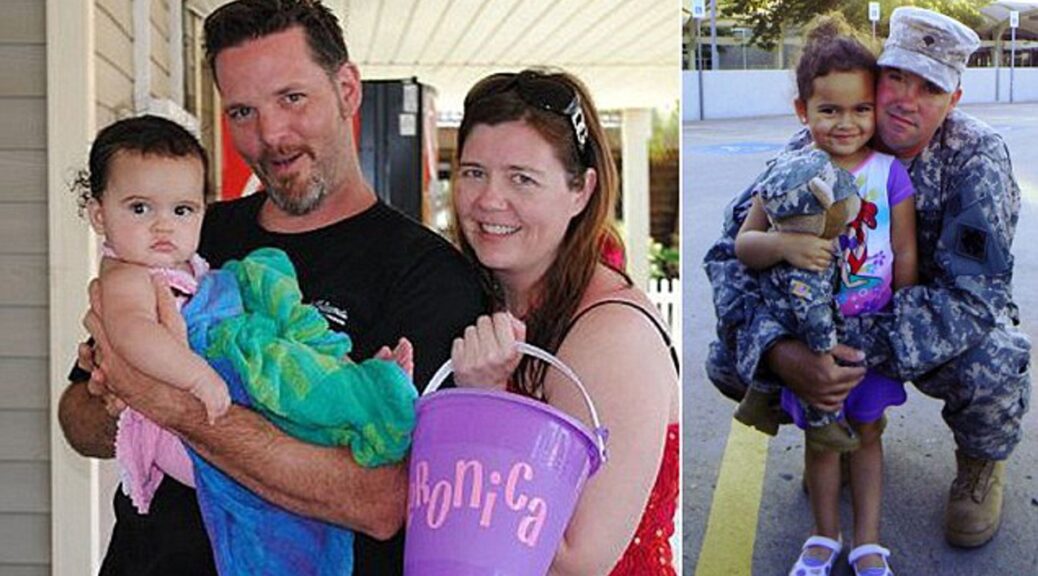Native American Baby Veronica
Native American Baby Veronica
Dustin Brown’s decision
Native American Baby Veronica
Christy Maldonado’s decision
Native American Baby Veronica
Adoptive relationship
August 2009: Melanie and Christy begin speaking weekly. Melanie flew to Oklahoma to visit Christy. Christy and the Capobiancos filed paperwork is with agencies and attorneys.
Dusten’s first name was misspelled (“Dustin”), but Christy brought it to their attention. Christy is unaware of birth father’s exact birth date.
Native American Baby Veronica
Later Key Points
- Maldonado provided her attorney with father’s correctly spelled name and location and what she believed to be his date of birth.
- her attorney forwarded this information to Cherokee Nation in a letter dated August 21, 2009. She testified she knew father’s birthday was in October and that he was older than she was, so Father’s year of birth was sometime before 1982.
- During oral arguments at SC Supreme Court hearing, Cherokee Nation acknowledge only 8 members (out of 316,000+) have the same first and last name as birth father using both “i” and “e.”
Native American Baby Veronica
Baby Veronica adopted
Native American Baby Veronica
Adoption challenged
Native American Baby Veronica
Cherokee Nation intervenes
Oklahoma > South Carolina
Native American Baby Veronica
Indian Welfare Act
Native American Baby Veronica
Veronica Brown
In Brown’s Favor
Native American Baby Veronica
Supreme Court Appeal
Supreme Court decision
June 25, 2013: in Adoptive Couple v. Baby Girl, a Minor Child Under the Age of FourteenYears,the US Supreme Court decided 5 – 4 that a Native American child did not have to be taken away from her adoptive parents and given to her biological father. That decision simply allowed for the possibility of the Capobiancos adopting Veronica.
Native American Baby Veronica
Back to South Carolina
July 17, 2013: in a 3-2 decision the South Carolina Supreme Court awarded custody of Veronica Brown to Matt and Melanie Capobianco and ordered the lower family court to finalize the adoption.
More intervention
 July 22, 2013: three of largest Native American organizations prepared to intervene.
July 22, 2013: three of largest Native American organizations prepared to intervene.
At a press conference, representatives from the National Congress of American Indians, the Native American Rights Fund and the National Indian Child Welfare Association announced plans to file a civil rights lawsuit if the South Carolina Supreme Court did not reconsider its decision to terminate Cherokee Nation citizen Dusten Brown’s parental rights without a “best interest” custody hearing.
July 31, 2013: the three Native American organizations filed a federal civil rights complaint on behalf of the now three-year-old Veronica.
The complaint argued that, “As a matter of law, the actions of the state courts of South Carolina have deprived the plaintiff (Veronica) of a meaningful opportunity to be heard on the matter of her current best interests before being transferred from her father to an adoptive couple.”
Native American Baby Veronica
Native American Support
More than 40 tribes, attorneys general, scholars and organizations signed a letter in support of the lawsuit, including the Inter-tribal Council of the Five Civilized Tribes, of which Veronica and Dusten Brown’s tribe, the Cherokee Nation, were a member.
Through a spokeswoman, the council released the following statement: “A severe injustice has been committed to an innocent Cherokee child and her loving family in Oklahoma. The Brown family, including Veronica, deserves their due process. They do not deserve to have their lives forever transformed by the South Carolina judicial system without cause or consideration. Indian children being removed from their families and homes is not a new story in Indian Country. Those dark days have reared their head again sadly in South Carolina. We will stand with Veronica, the Browns, and national tribal organizations fighting for fairness and justice.”
Veronica Brown continued to live with Dusten.
Native American Baby Veronica
August 2013
- August 6 – Judge Martin issued an enforcement order for Brown to immediately transfer Veronica back to her lawful parents and asked for assistance from law enforcement if needed.
- August 11 – Matt and Melanie Capobianco held a press conference in Charleston asking for help locating their daughter.
- August 12 – SC Governor Nikki Haley signs extradition warrant for Brown. “Gov. Haley has been working with law enforcement and the solicitor’s office to issue a requisition warrant today,” said spokesman Doug Mayer. “She stands in support of the Capobiancos and shares their desire to bring Veronica home safely.”
- August 13 – Brown turned himself into authorities in Sequoyah County, Oklahoma.
- August 13 – Matt and Melanie left for Oklahoma.
- August 14 – a press conference held at the Hyatt Regency in Tulsa. Immediately following the press conference, OK Governor Mary Fallin released a statement asking Brown to let Matt and Melanie see Veronica.
- August 15 – Matt and Melanie determined that the Cherokee Nation was hiding Veronica on tribal land and requested a writ of habeaus corpus in Cherokee County, Oklahoma.
- August 16 – Court hearing held in Cherokee County. Mediation is ordered and a gag order put in place.
- August 30 – Nowata County, Oklahoma recognized Veronica’s adoption. Biological father appeals to Oklahoma Supreme Court.
Native American Baby Veronica
Oklahoma Supreme Court
August 30, 2013: the Oklahoma Supreme Court granted an emergency stay to keep Veronica with Dusten Brown and planned to hear arguments from his lawyers and those of the girl’s adoptive parents.
- Sept. 4 – Governor Mary Fallin signed extradition warrant.
- Sept. 5 – Dusten Brown turned in himself and he is released on bail.
- Sept. 12 – Oklahoma Supreme Court assigned case to court of civil appeals.
- Sept. 16 – Mediation hearings begin in Tulsa, Oklahoma.
Veronica Capobianco
September 23, 2013: after the Oklahoma Supreme Court ruled it would not intervene, Veronica, now 4-years-old, handed over to Matt and Melanie Capobianco
Cherokee Nation spokeswoman Amanda Clinton confirmed the announcement via social media: “It is with a heavy heart that I can confirm Veronica Brown was peacefully handed over to Matt and Melanie Capobianco (this) evening,” she tweeted. “Updates will be forthcoming, but the transition was handled peacefully and with dignity by all parties. Please keep Veronica in your prayers.”
Native American Baby Veronica
Statement from Capobiancos
Native American Baby Veronica
Dusten Brown ends fight
October 10, 2013: Brown said he and the Cherokee Nation were dropping the legal fight to regain custody.
“I know we did everything in our power to keep Veronica home with her family,” Brown said in Oklahoma. “Veronica is only 4 years old, but her entire life has been lived in front of the media and the entire world. I cannot bear for [it to continue] any longer…. I love her too much to continue to have her in the spotlight. It is not fair for her to be in front of media at all times,” he said. “It was the love for my daughter that finally gave me the strength to accept things that are beyond my control.”
Bitter aftermath
November 26, 2013: Matt and Melanie Capobianco filed a motion to collect more than $1 million in attorneys’ fees from Brown and his tribe. Court documents filed by the Cherokee Nation state it would be “inappropriate, unreasonable and unconscionable” for the adopted parents of a 4-year-old Cherokee girl to seek the legal fees.
The Capobiancos dropped the suit in January 2016.

